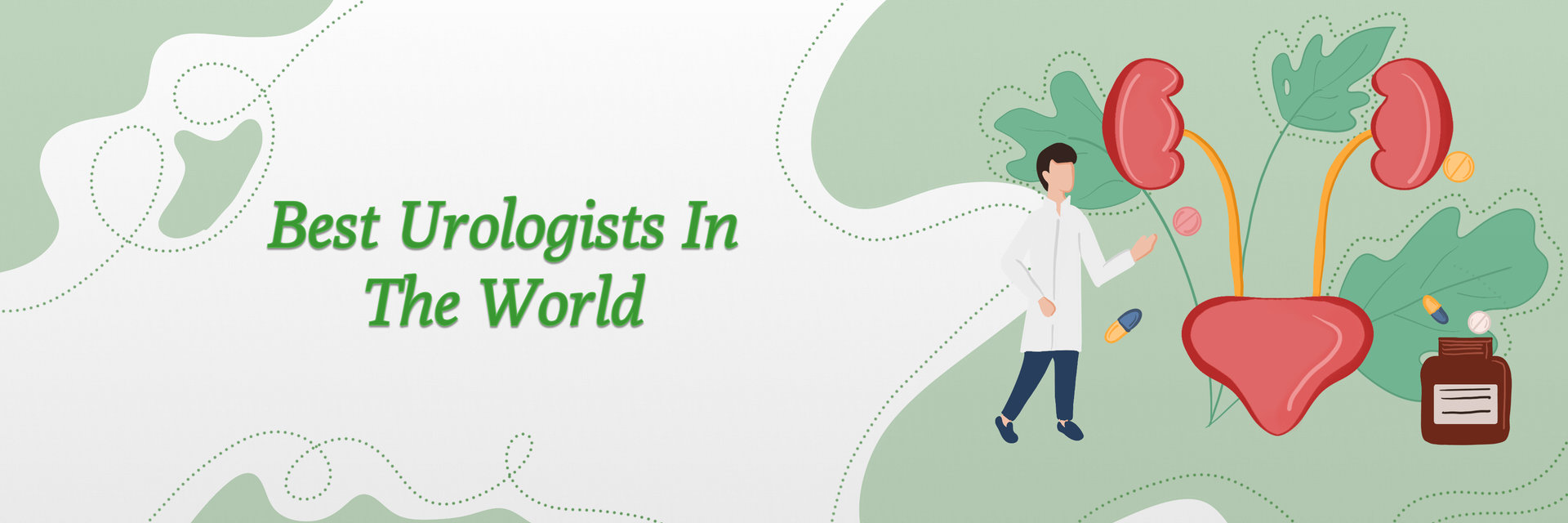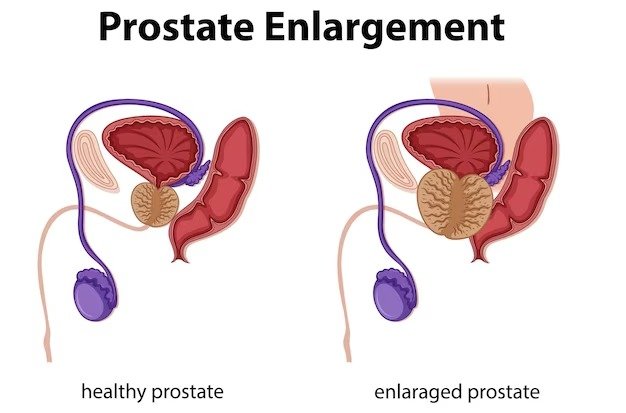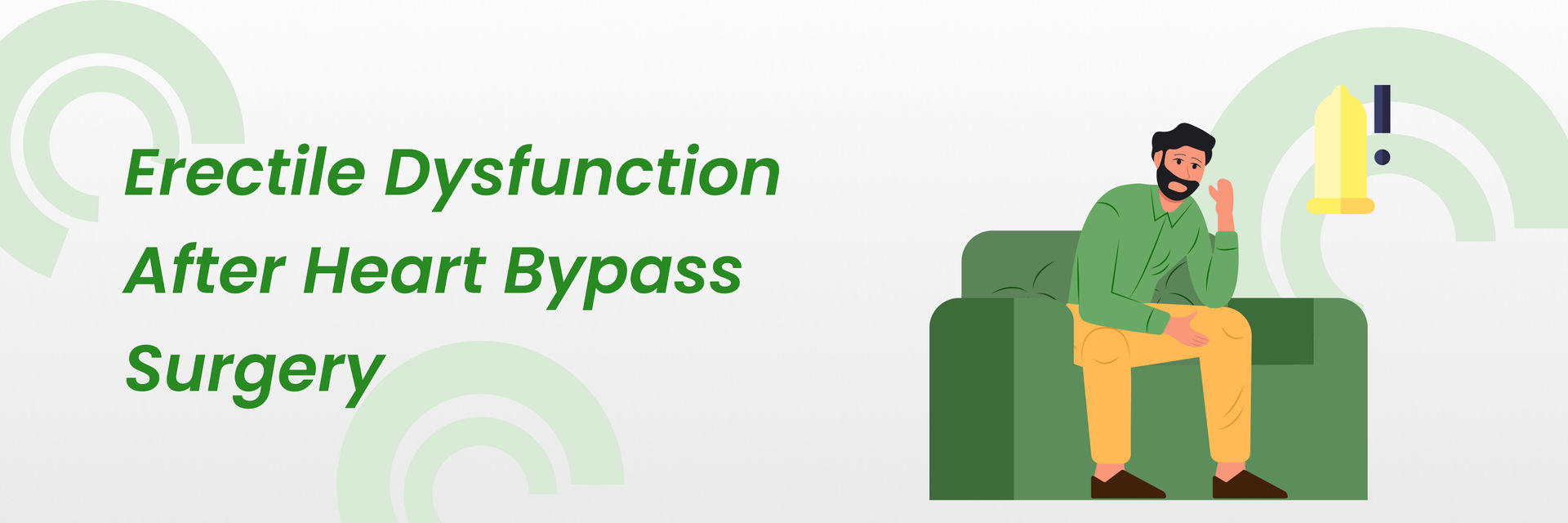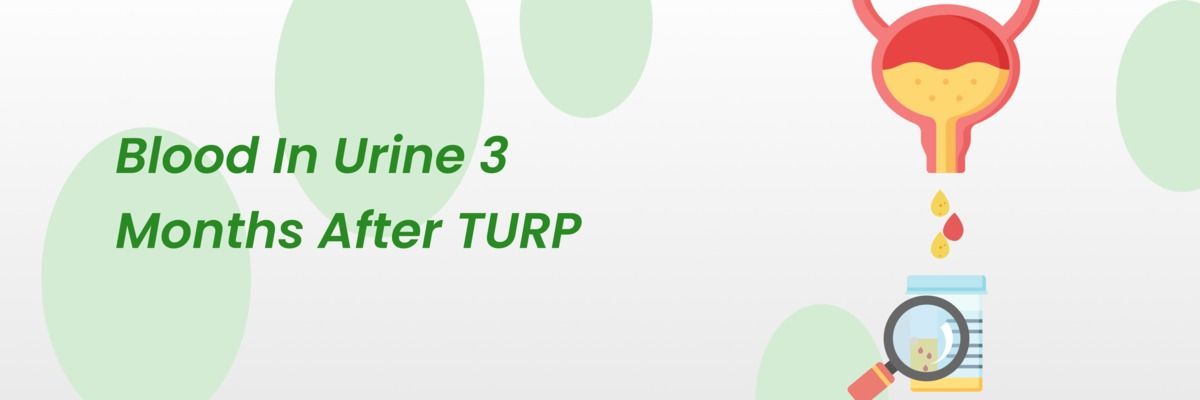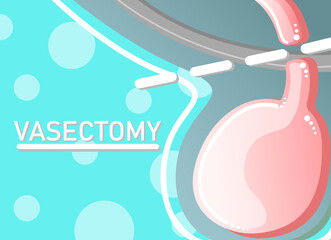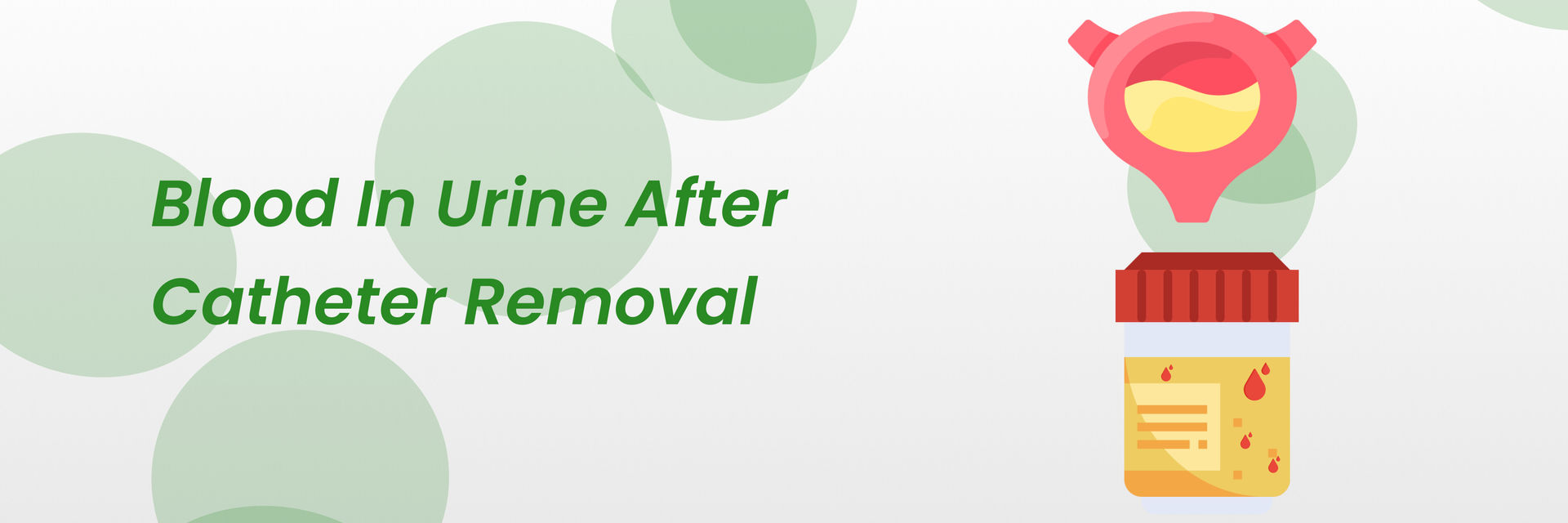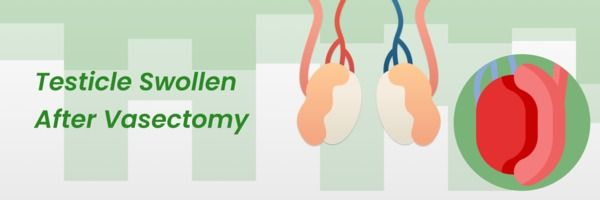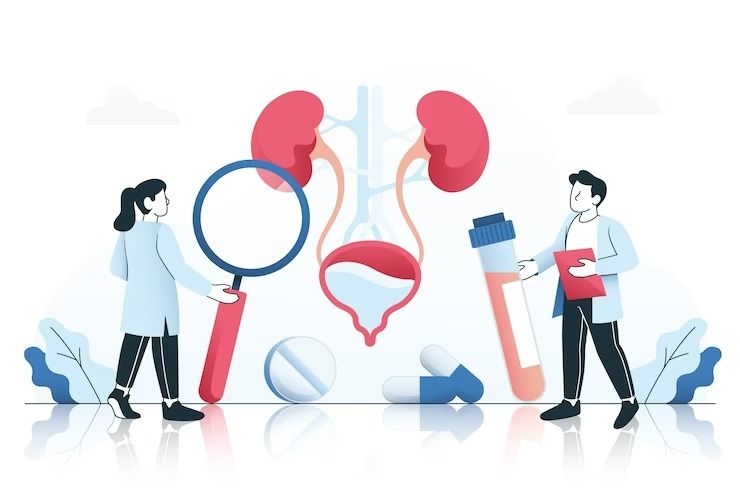Varicocele is a condition in which the veins in the scrotum become enlarged. This leads to a pooling of blood that can cause discomfort and affect sperm production.
Varicocele can decrease fertility. But the chances of getting pregnant with varicocele can vary depending on the severity of the condition and whether it has caused any damage to the testicles or affected sperm production. In some cases, a varicocele may not affect fertility at all.
Let's read ahead to find out the impact of varicocele on fertility.
What is the link between varicocele and infertility?
The majority of men with varicocele have no infertility symptoms. But a few of them may experience problems related to fertility. This distinction is caused by varicoceles as it interferes with the body’s ability to make and store sperm.
In a 2014 study, 816 infertile males were examined and one out of every three males had varicoceles. According to this frequency, varicoceles can occasionally, but not always contribute to infertility. There is conflicting evidence on the subject of varicocele’s impact on infertility.
There is some evidence, according to a 2012 meta-analysis of earlier research, that varicocele infertility treatment may increase fertility. This is mainly in cases where the cause of infertility is unknown.
Varicocele can cause infertility because it poses health risks to sperm because of bulging veins and reduces sperm count. Varicocele's infertility rate is lower in people who have normal sperm counts.
Is it possible for men with varicocele to conceive naturally, or is assisted reproductive technology necessary?
The Reproductive Science Center of the San Francisco stated that -
It is possible for a man with varicoceles to conceive with his partner without assisted reproductive technology. In fact, most men with this condition can naturally conceive. Again, the odds of conception without intervention depend upon the severity of the condition as well as other contributing factors.
Your health is too important to ignore – schedule your appointment now.
What are the grades of Varicocele?
The majority of varicoceles are painless. The traditional description of them is that they feel like ”a bag of worms” in the scrotum. They become more noticeable when the patient is standing or straining themselves.
There are three different grades of varicocele:
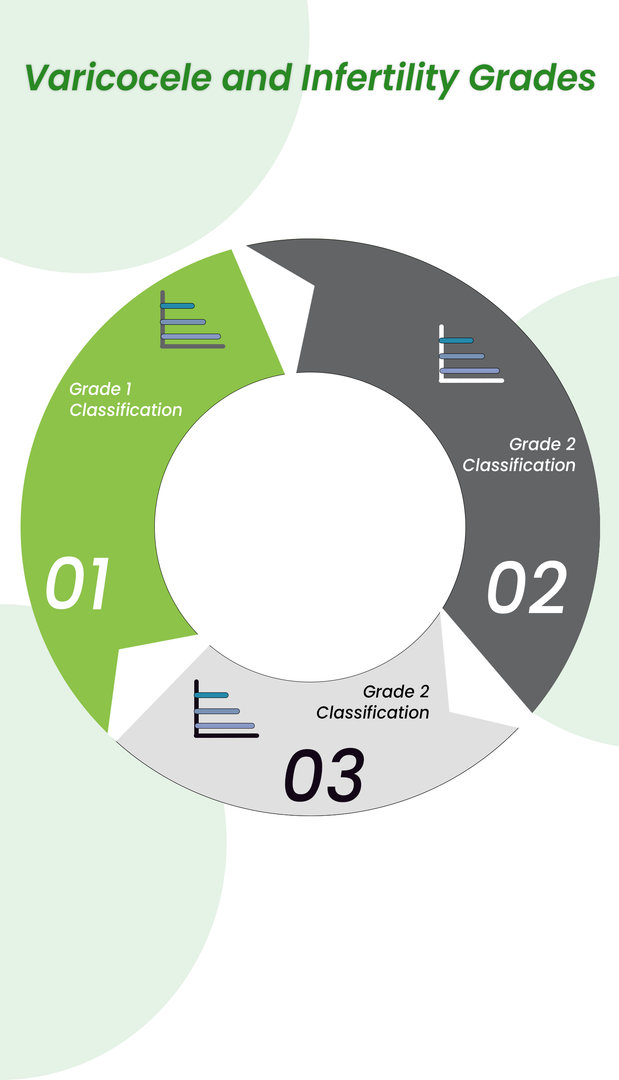
Grade 1 Varicocele - Only apparent when the person is bending over (Valsalva Maneuver)
Grade 2 Varicocele - Can be felt at rest but can be seen.
Grade 3 Varicocele-Visible after a test is done.
What percentage of men with varicocele are infertile?
Varicoceles are seen in 35-40% of men who are experiencing primary infertility. When a couple has not been successful in conceiving even after 12 months of trying, it is considered Primary infertility. 45-81% of males with secondary infertility had varicoceles.
Also in a European study, it was found that varicocele infertility is very common. It affects almost 16.6% of all infertile males.
Does varicocele affect erectile function?
Bilateral varicocele or grade three varicocele can potentially cause infertility in males and erectile dysfunction. Bilateral varicocele is linked to a considerable decrease in testicular function and a significant increase in FSH and LH levels in the blood. The increased levels of these two hormones lead to erectile dysfunction, reduced libido, infertility and less energy.
If you have varicocele and are facing infertility issues, you might be interested in learning “How treatment could help?” Continue reading to get the solution!
Does treating varicocele improve fertility?
Varicocele infertility surgery may result in the following outcomes, which might increase fertility:
- Sperm quality and quantity could increase.
- Eventually, testosterone levels would come to normal.
- The varicocele pain may be reduced.
- The couple may be able to conceive a child. The success rates for getting pregnant after the surgery range from 30-50%.
Want to inquire your about personalized treatment expenses? Don't hesitate. Talk to us today.
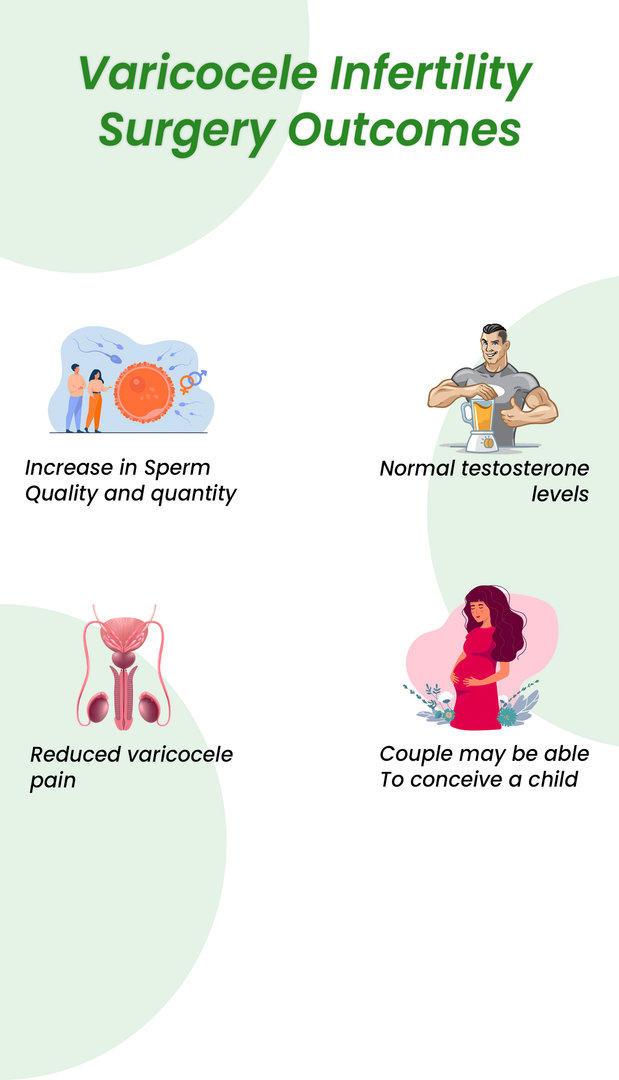
Varicocele embolization is another minimally invasive procedure used for treating varicocele. While there are certain risks involved with varicocele embolization, including acute side pain, coil movement, and varicocele recurrence. The surgery is effective in resolving varicocele infertility in roughly 90% of instances. The sperm count and motility increase after the embolization surgery and the likelihood of conception is over 50%.
Are you wondering as to how is varicocele treated? Keep reading to know.
According to the Reproductive Science Center of the San Francisco, they say,
"It is controversial whether or not varicoceles need to be treated once they are identified. In 2008 the American Society for Reproductive Medicine (ASRM) issued a Practice Committee Joint Report on this topic. A summary of this report is outlined below."
"If a man chooses to pursue treatment, he can undergo a varicocele repair or fertility treatments such as intrauterine insemination (IUI) and in vitro fertilization (IVF)."
What are the chances of getting pregnant with varicocele?
Varicocele can affect a man's ability to have children. How likely a couple is to get pregnant depends on how severe the varicocele is and how it affects sperm. Many studies have shown that varicocele can lower sperm counts, making it harder to conceive. But, the chance of getting pregnant can also depend on other factors, like the age of both partners and whether there are any other fertility problems.
One study found that the chances of getting pregnant naturally with varicocele are lower than without it. But the difference is not very big. The study found that the effect of varicocele is greater when couples are trying fertility treatments like IUI or IVF.
Another study found that treating varicocele with surgery can improve the number, movement, and shape of sperm. This can increase the chances of getting pregnant naturally or with fertility treatments.
Up to 30% to 50% of couples will become pregnant with varicocele, given that they are having proper treatment to cure varicocele. Although 10% of men experience a recurrence of varicocele. 90% of the time varicocele embolization is effective and nearly 50% of couples have successful pregnancies with varicocele.
However, when it comes to infertility, in vitro fertilization (IVF) is a common treatment option for couples. But, one of the major concerns for couples considering IVF is the cost. The cost of IVF varies depending on the hospital, region, and country. It can be a costly procedure, ranging from a few thousand to tens of thousands of dollars.
Therefore, it is essential to find an IVF hospital that provides quality care at an affordable cost, taking into account the IVF cost. It's also very important to talk to a doctor to figure out the best treatment options based on your specific situation.
Is Varicocele Infertility Reversible?
Both surgical and non-surgical approaches are available to reverse varicocele infertility. The goal of these treatments is to decrease the pressure inside varicose veins, which make up the varicocele. A varicocelectomy is a surgical operation in which the veins responsible for the varicocele are tied up.
Varicocele embolization is a less invasive treatment option.
Both these treatments can reduce varicocele symptoms and enhance sperm quantity and quality. Thus improving fertility and reversing varicocele infertility.
Take the first step to recovery. Get in touch with us for your treatment.
References:
https://pubmed.ncbi.nlm.nih.gov/
